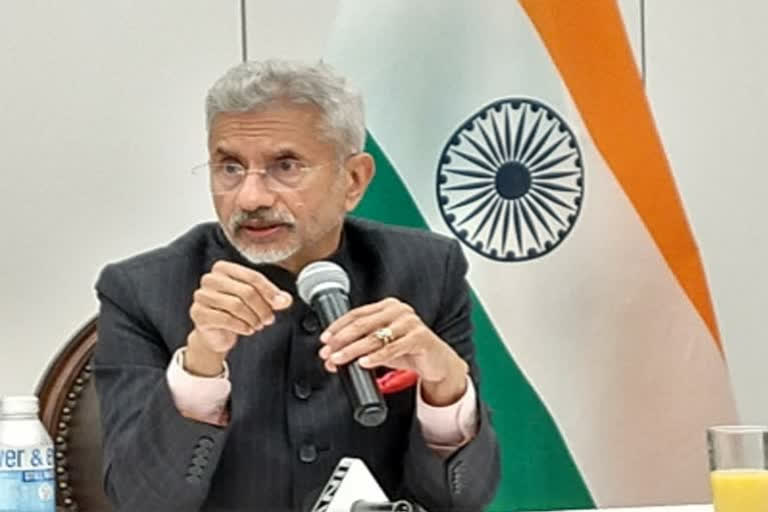New Delhi: Former Prime Minister Atal Bihari Vajpayee transformed India’s relationship with the United States, and ties with Russia, modus vivendi with China, EAM S Jaishankar said at 3rd Atal Bihari Vajpayee Memorial Lecture. He praised the then prime minister Vajpayee's way of handling the diplomatic situation following the nuclear tests in 1998 and said that within a space of two years, India had engaged all the major countries of the world.
Presiding over the third Atal Bihari Vajpayee memorial lecture that was delivered by former Singaporean diplomat Bilahari Kausikan in New Delhi, Jaishankar said, "The fundamental basis including respect, mutual sensitivity, and mutual interest, which we articulate today in the attempt to reach a modus vivendi with China, a lot of it was visible when the then Foreign Minister Vajpayee visited China. Atal Bihari Vajpayee transformed ties with the US, imparted continuity with ties with Russia, modus vivendi with China", EAM Jaishankar pointed out.
The EAM said the former PM saw an opportunity in the neighborhood but was aware of the challenge of terrorism. He noted that Vajpayee was never impervious to the challenges of terrorism and hailed his realism in using all instruments at his command to actually try to forge a basis of relationships in this region which would very explicitly abjure terrorism.
Talking about the 1998 Pokhran nuclear tests, the external affairs minister urged people not to look just at the tests but also look at the diplomacy that followed them. "Within a space of two years after the tests, we had engaged all the major countries of the world, had actually brought them around. When you had the visit of president (Bill) Clinton, PM (John) Howard, PM (Yoshiro) Mori, visit of president (Jacques) Chirac. It was the post-test diplomacy, which I think anybody who is in the field of diplomacy, should look at and seek to draw lessons," he said.
"I was at that time posted in Japan and it was a relationship that was particularly affected by the nuclear tests. But we always drew from the prime minister's confidence that we would find a way of settling it down and indeed today when I look at that relationship, I marvel at the wisdom and the maturity with which prime minister Vajpayee got all of us to look at that particular challenge," Jaishankar added .
